Foraging is far more than collecting wild food.
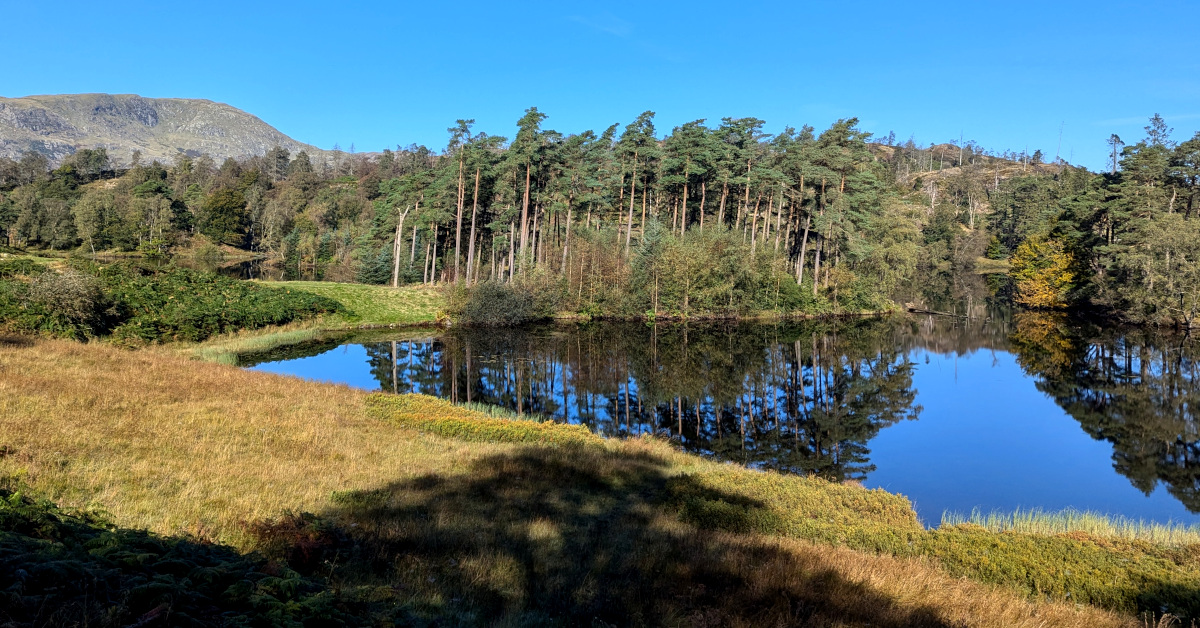
Foraging, traditionally seen as the act of gathering wild food, extends far beyond mere sustenance. It's an engagement with nature that offers numerous benefits, both tangible and intangible, which enrich our lives in unexpected ways.
Foraging has been part of the culture and history of every civilisation for many thousands of generations and a recent study involving 20,000 UK participants, found that just 120 minutes a week in nature can significantly improve health and well-being, showcasing foraging's therapeutic value.
Beyond the bite:
Beyond the nutritional benefits of wild foods, foraging involves physical activity which contributes to overall fitness.
Modern foragers often report a profound shift in their perspective. What begins as a quest for wild mushrooms or berries can evolve into a broader appreciation for biodiversity, water cycles, and the seasonal rhythms of the earth.
Below: Foraging can provide for a diverse range of tastes, my Damson (left) and Sloe (right) gins, ready for a winter tipple.
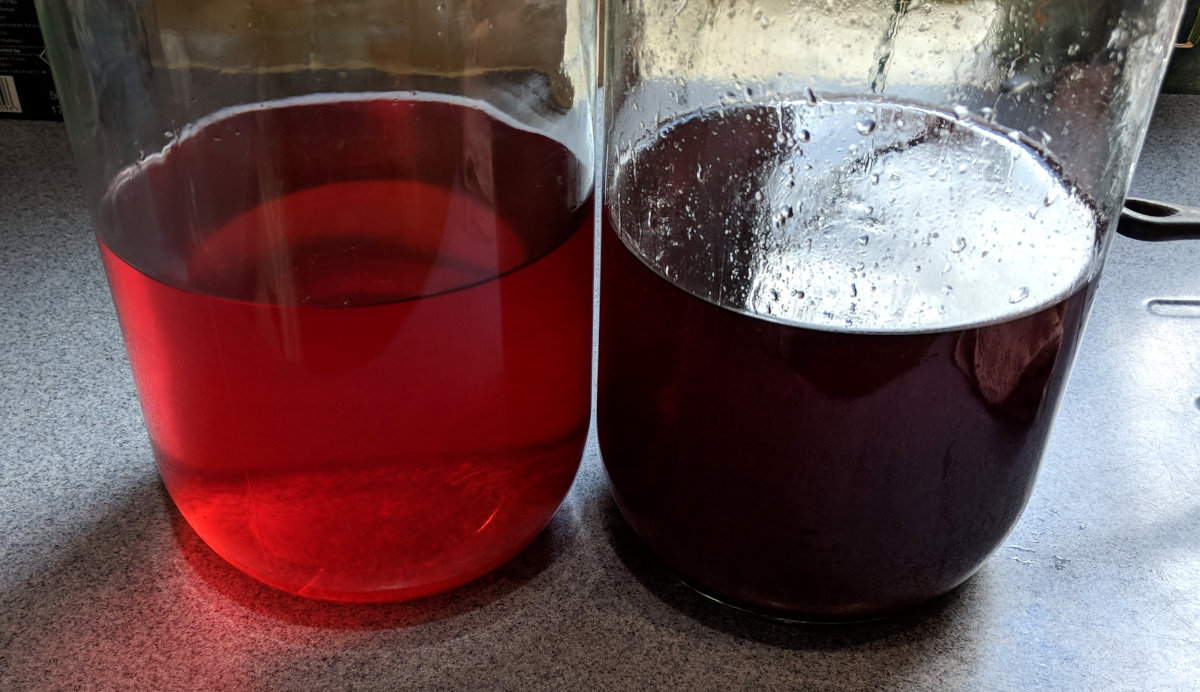
Personally I feel that every member of the plum family benefits from at least 6 months steeping in strong alcohol!
It is as much an exercise in mindfulness, where the forager must slow down, observe their surroundings carefully and be prepared to move with the seasons.
It can also bring all the benefits of a community. Today, it fosters social connections through foraging groups, workshops, and online communities where experiences are shared, and new friendships are forged. This aspect helps in preserving cultural heritage while building new networks.
Food you can't get in the shops:
Many of the foods that are foraged you will never find in the shops. Here in Yorkshire I can find medlars, crab apples, bilberries and many other seasonal foods that you will never be able to buy in a store.
Below: A wild medlar tree, and no, I'm not going to tell anyone where it is!
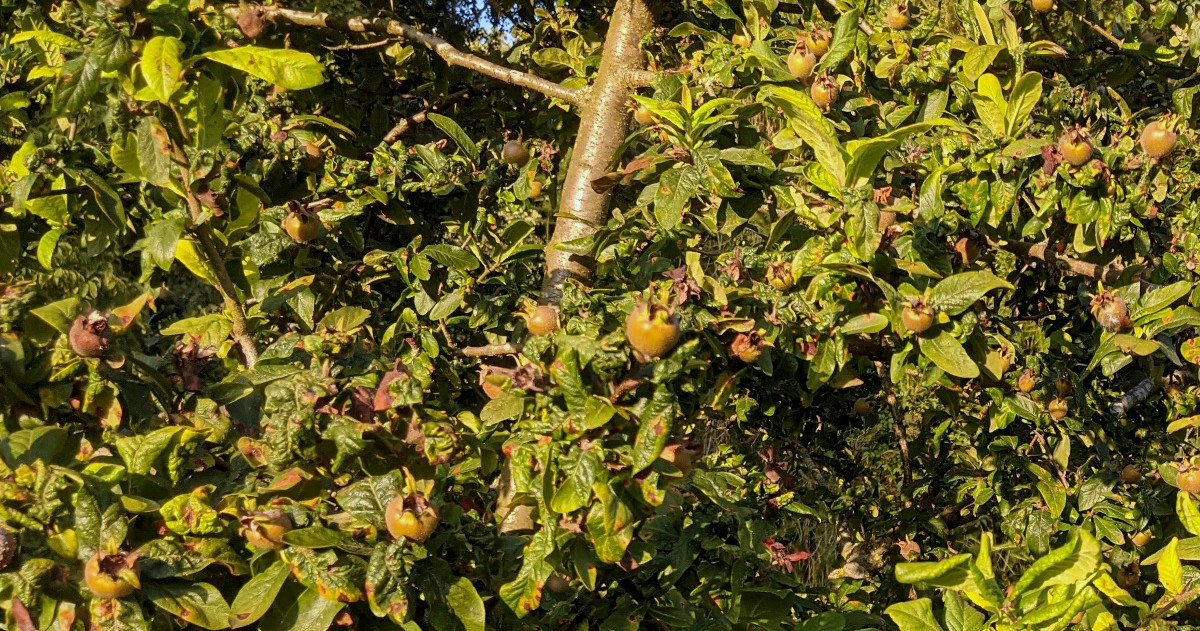
Wild fruit has a better flavour and nutrient profile than modern cultivated varieties, most of which are chosen because of their ability to last on the store shelf. Within 10 miles of my house I have large stands of wild berries including strawberries, raspberries and wild blueberries.
Remember that some foods you can learn to identify yourself from guide books or digital resources, but sometimes you will need to take lessons from an expert.
Connection with nature:
Foraging brings us closer to nature, fostering a deep respect and understanding for the environment. This connection is not just about finding food but about experiencing the seasons, observing ecosystems, and understanding the delicate balance of nature.
Below: The wild strawberry is a taste sensation.
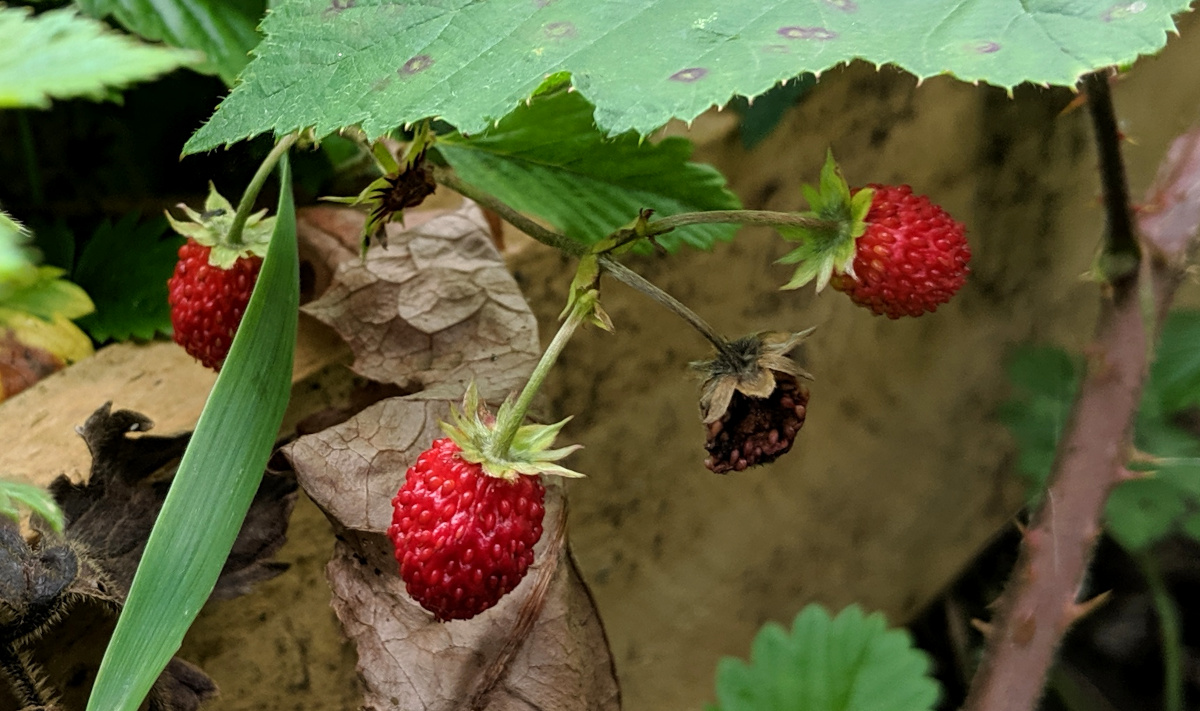
This interaction can lead to a more profound appreciation for conservation efforts, as foragers become stewards of the land, ensuring sustainability for future generations.
Cultural, social and historical connections:
Foraging is a practice steeped in cultural significance. Indigenous communities around the world have long traditions of gathering food and resources from the wild.
These practices are not only a means of survival but are woven into cultural identities, ceremonies, and oral histories.
When I was young, I grew up in Africa and was lucky enough to spend time with the San bushmen, one of the last hunter gatherer populations at the time. These small family groups were masters of finding food, water and everything they needed from their local environment.
Below: A family group of San bushmen. You will need to excuse the quality of the picture, I took it over 40 years ago with a traditional camera.
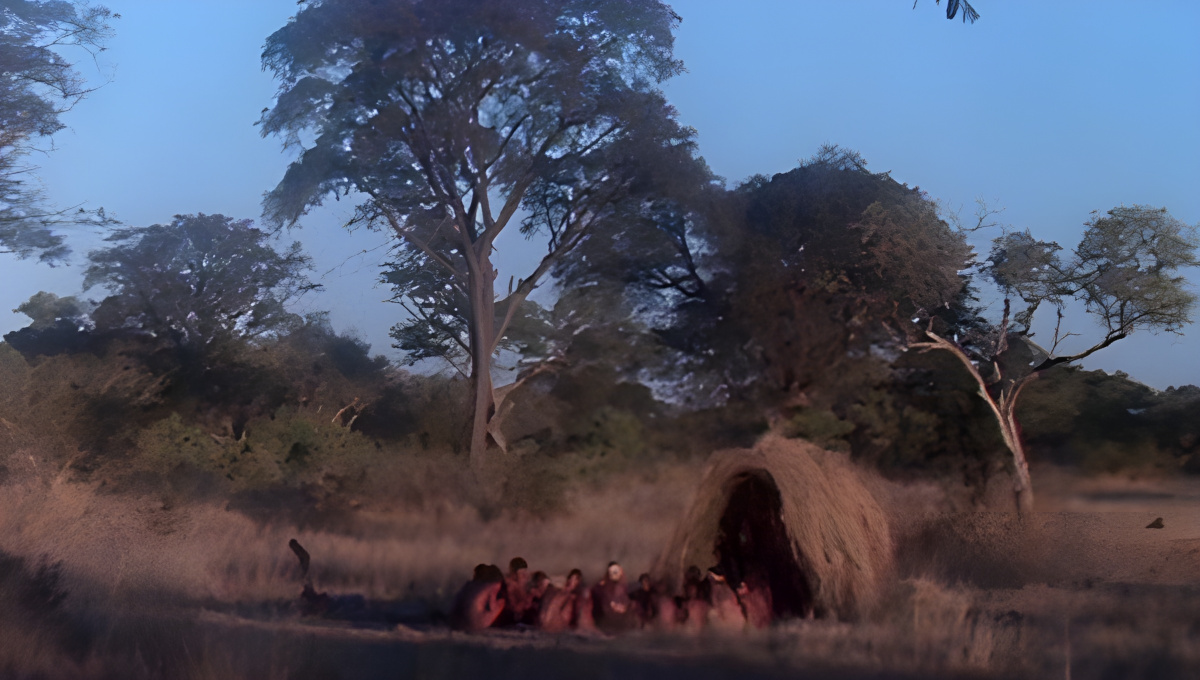
Engaging in foraging practices allows people to reconnect with ancestral traditions and honour the knowledge passed down through generations.
Enhancing mental and physical well-being:
Foraging has notable mental health benefits, often seen as an antidote to the stresses of modern life. I always feel better for getting out into the countryside.
Spending time outdoors, engaging in physical activity, and focusing on the present moment can reduce anxiety, improve mood, and promote a sense of well-being. Studies show that time spent in nature helps alleviate symptoms of depression and boosts cognitive function.
Below: Early morning walk with the dog to my favourite bilberry picking spot.
Despite being a working spaniel he has yet to find anything useful like truffles!
The act of foraging combines these benefits, making it a holistic experience that nurtures both body and mind.
Economic and sustainability aspects:
Foragers have access to a diverse food supply they can rely on for many months of the year and encourages a more sustainable lifestyle by reducing reliance on industrial food systems, which often have higher environmental costs.
As an example, I sell Christmas wreath kits from the beginning of November and If I was to over harvest one year, I would be short the year after!
Below: A picture frame I made with drift wood foraged from the seashore.
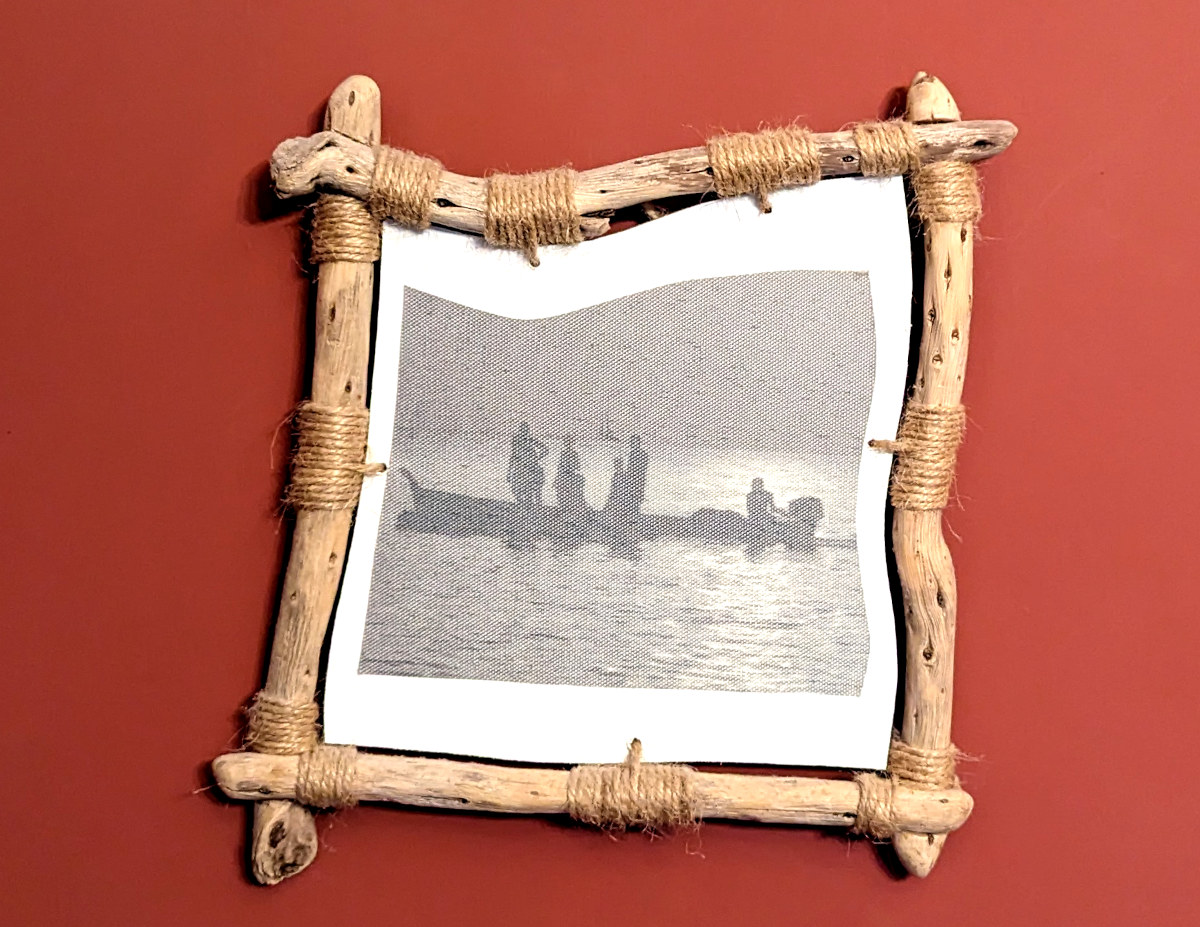
Foraging teaches resourcefulness, encourages minimal waste, and can be economically beneficial by reducing food expenses. Moreover, it promotes a local food economy, where foragers can share or sell their finds, contributing to local economies.
Foraging for crafting materials:
One of the major pluses to being a forager is how easy it is to get started, all it takes is a little time, some research and equipment you probably already have.
Foragers are not limited to edible and medicinal plants; they also seek materials for crafting and creative expression. Natural fibres like nettle and hemp can be harvested for weaving, while birch bark is commonly used for crafting containers and even art.
Below: A Christmas wreath made with foraged materials.
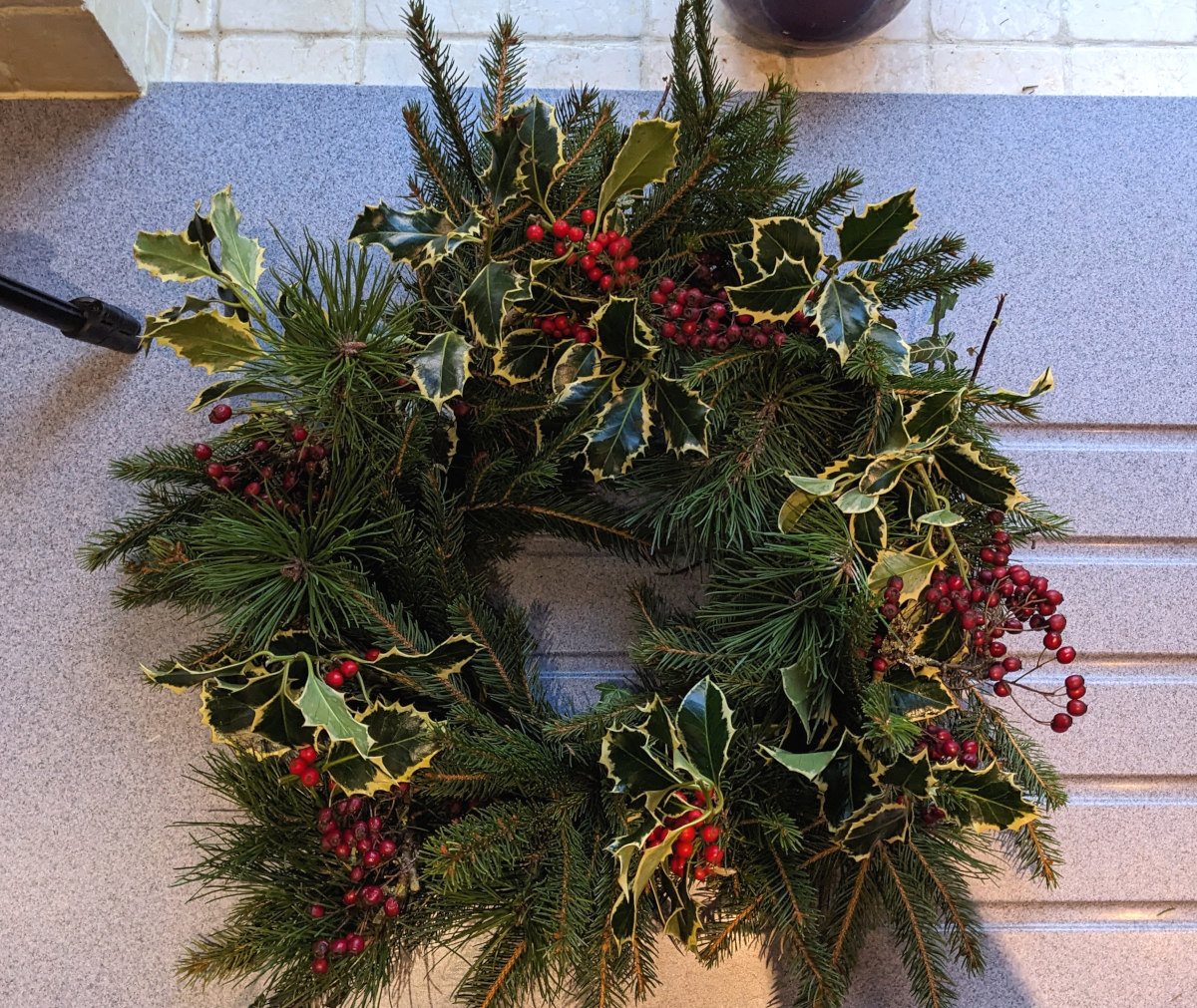
Stones, feathers, and plant dyes provide endless possibilities for creative projects. This aspect of foraging allows people to turn wild materials into works of art, tools, and useful household items.
Discovering natural remedies:
Beyond food, foraging provides access to plants with medicinal properties. Many cultures have used wild plants in traditional medicine for centuries.
During the second world war England turned to it's hedgerows for medicines and supplements. Rose-hips have more vitamin C than just about any fruit around.
Below: Wild Yorkshire rose hips can be made into a syrup. I like to add a few drops to a Gin and Tonic.
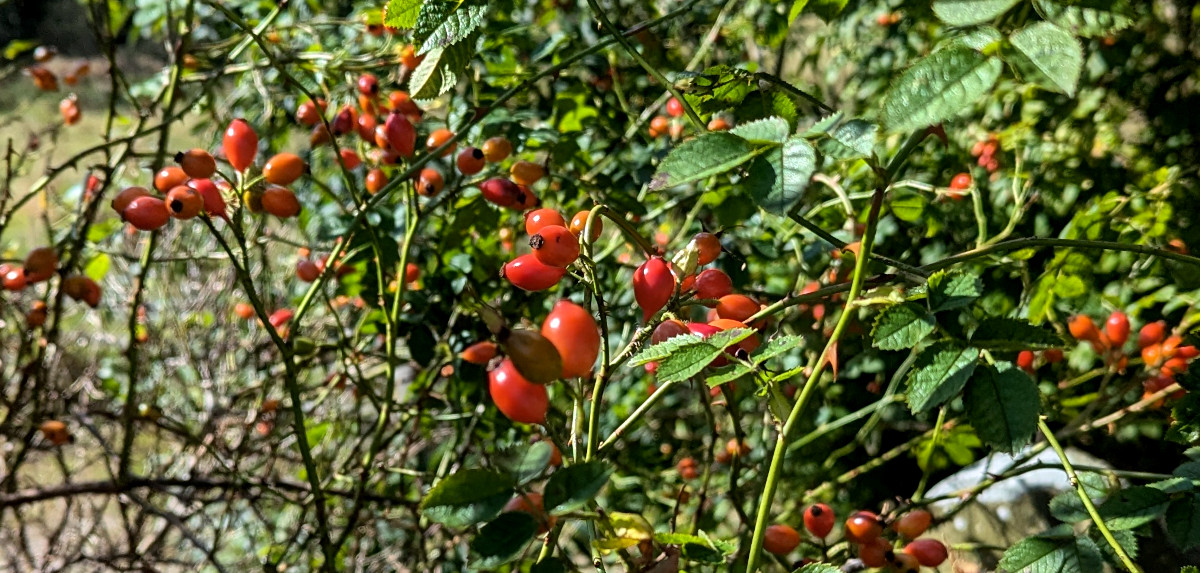
For instance, yarrow, which grows abundantly in temperate climates, has been used as a wound healer. Dandelion, often dismissed as a weed, is packed with nutrients and used for detoxifying remedies.
Foraging allows us to reconnect with the rich pharmacopoeia of the natural world, a practice that modern herbalists and naturopaths continue today.
Educational value:
Individual personal growth either as an individual or part of a group of like minded people.
Learning about wild plants, their uses, and their ecological roles educates foragers on botany, ecology, and even history. This knowledge can lead to a broader interest in science, sustainability, and environmental issues, making foragers more informed citizens.
As long as you follow a few simple and common sense rules and guidelines, foraging is a simple and safe activity for the whole family.
By foraging, people help keep this knowledge alive and accessible to future generations, preventing it from being lost in the face of industrial agriculture and urbanisation.
You might make a little money:
My crab apple jelly has a local cult following and if I can't make at least 30 jars a year I risk getting lynched by an angry mob.
Foraging is a multifaceted activity that enriches not only our diets but our lives. It's about fostering a deeper connection with the natural world, promoting health, building communities, educating oneself, and contributing to sustainable living.
By embracing foraging, we're not just gathering food; we're cultivating a lifestyle that values nature's abundance in all its forms.
